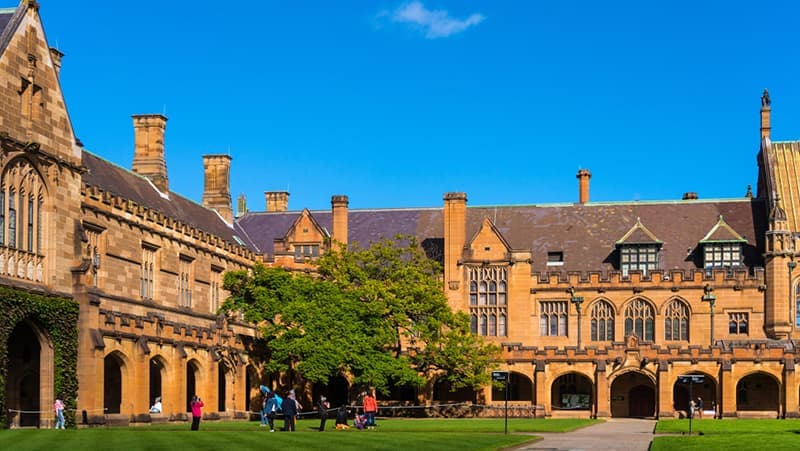
Study in Australia
Excellence Down Under
Combine world-class education with an incredible lifestyle in Australia's vibrant cities and stunning landscapes.
Why Study in Australia?
Australia offers exceptional education quality, a relaxed outdoor lifestyle, and strong employment prospects. With seven of its universities in the world's top 100, Australia provides innovative teaching methods, excellent research facilities, and a strong focus on practical skills.
7 universities in world's top 100
Post-Study Work Visa for 2-4 years
High quality of life and safety
Strong focus on innovation and research
Key Benefits of Studying in Australia
Discover the advantages that make Australia an excellent choice for your education journey
Quality Education
Study at globally ranked universities with innovative teaching and world-class facilities.
Work Rights
Work while studying and access generous post-study work visa opportunities.
Lifestyle
Enjoy excellent weather, beautiful beaches, and a balanced work-life culture.
Support Services
Benefit from comprehensive student support and protection under Australian law.
Top Universities in Australia
Explore some of the world's leading educational institutions
Australian National University
Canberra, ACT
1st in Australia
University of Melbourne
Melbourne, VIC
2nd in Australia
University of Sydney
Sydney, NSW
3rd in Australia
University of New South Wales
Sydney, NSW
4th in Australia
University of Queensland
Brisbane, QLD
5th in Australia
Monash University
Melbourne, VIC
6th in Australia
Cost of Studying in Australia
Plan your budget with our comprehensive cost breakdown
Tuition Fees
AUD 20,000 - 45,000 per year
Living Expenses
AUD 21,000 - 26,000 per year
Detailed Cost Breakdown
Undergraduate tuitionAUD 20,000 - 45,000/year
Postgraduate tuitionAUD 22,000 - 50,000/year
AccommodationAUD 200 - 500/week
Food & livingAUD 300 - 500/week
Scholarships & Financial Aid
Explore funding opportunities to make your education in Australia more affordable
Australia Awards Scholarships
Destination Australia Scholarship
Research Training Program (RTP)
University-specific scholarships
International Postgraduate Research Scholarships
Visa Information
Everything you need to know about student visa requirements for Australia
Visa Type
Student Visa (Subclass 500)
Duration
Course duration + additional time
Work Rights
48 hours per fortnight during term, unlimited during breaks
Visa Requirements
Confirmation of Enrolment (CoE)
Genuine Temporary Entrant (GTE) statement
English proficiency proof (IELTS/TOEFL/PTE)
Overseas Student Health Cover (OSHC)
Financial capacity proof
Work Opportunities
Build your career with excellent work opportunities during and after your studies
During Studies
Work up to 48 hours per fortnight during semester and unlimited hours during scheduled breaks.
After Graduation
Temporary Graduate Visa (Subclass 485) allows 2-4 years of work, depending on qualification level. Opportunities for permanent residency.
Popular Career Sectors in Australia
Mining & Resources
Healthcare & Nursing
Engineering
Information Technology
Hospitality & Tourism
Accounting & Finance
Intake Seasons
February/March (Main)
July/August (Main)
Popular Student Cities
Sydney
Melbourne
Brisbane
Perth
Adelaide
Canberra
Ready to Start Your Journey to Australia?
Get expert guidance from our counselors and take the first step towards your dream education. Book your free consultation today!